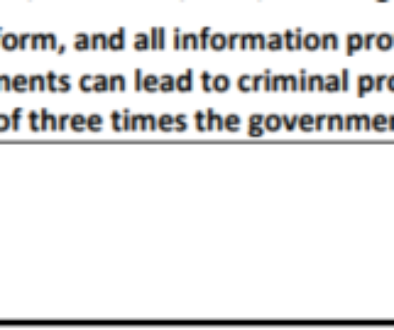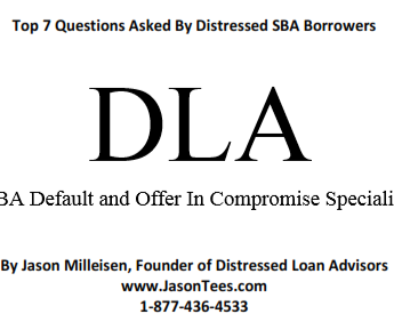It’s not hard to tell when your business is struggling. Month after month, there is not enough money to go around. Month after month, everyone gets paid but you, the person who has sacrificed everything to make this business work. When things start looking really bad, you can’t even afford to pay your expenses or your own salary. At some point, you will start wondering if this business of yours is going to make it, or if it’s going to limp along for a while, and eventually die a slow death.
The purpose of this article is to discuss what options exist for business owners who have defaulted or are on the verge of defaulting on their SBA loan. We will cover your options if you want to stick it out and try to remain viable, if you want to pack it in, and if you just aren’t sure what the heck to do.
Deferments and Modifications
If your business is struggling to meet your debt obligations, but you firmly believe that you are the victim of a temporary economic lull that the business will ultimately recover from, your best chance for relief is either a loan modification or a loan deferment. Lenders and the SBA will consider granting a modification/deferment to borrowers who they deem to be worth helping. A few factors that your lender will taking into consideration:
– Have you have a modification/deferment before?
– Does the business have a satisfactory repayment history prior to the current situation?
– What collateral is there for the loan?
– Do current cash flows demonstrate the business’ ability to make the deferment/modification payment?
– What steps has the business taken to rectify their current cash flow crunch (aside from asking for a deferment)?
SBA Offer In Compromise (Settlement)
For those who have decided that it’s time to cut their losses and close up shop for good, the SBA does allow guarantors to make a settlement offer if a deficiency exists following the liquidation of loan collateral. This option is usually only available to businesses that have ceased operations (Note: certainly loan types can be settled without closing the business). When considering an Offer In Compromise, keep the following in mind:
– The purpose of the OIC is for the lender/SBA to recover all available funds from the guarantors without having to forcibly take the funds via litigation. This means the SBA will not arbitrarily take any amount that is offered. They will only accept offers that they feel are comparable to what they’d get through legal means.
– If you plan to stay in business, debt settlement or debt reduction is not an option that the SBA will consider.
– Selling business assets to another entity that you own, or to a related party in order to give the appearance of business closure can be considered to be fraudulent.
– Starting a new business under a new name, but basically servicing the same customer base in order to give the appearance of business closure can be considered fraudulent.
– The SBA will consider both lump sum settlements, as well as payments over time. Lump sums are generally preferred.
Distressed Loan Advisors (http://www.JasonTees.com) offers expert advice about dealing with SBA Loan Default and Forgiveness, and can be reached at . or..


